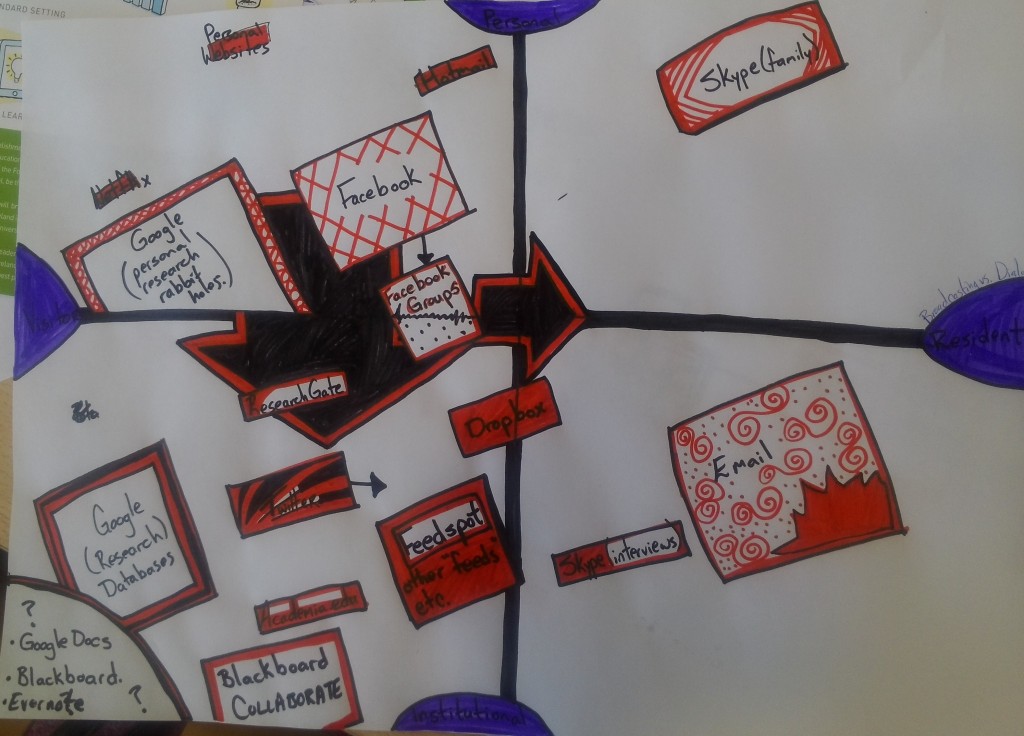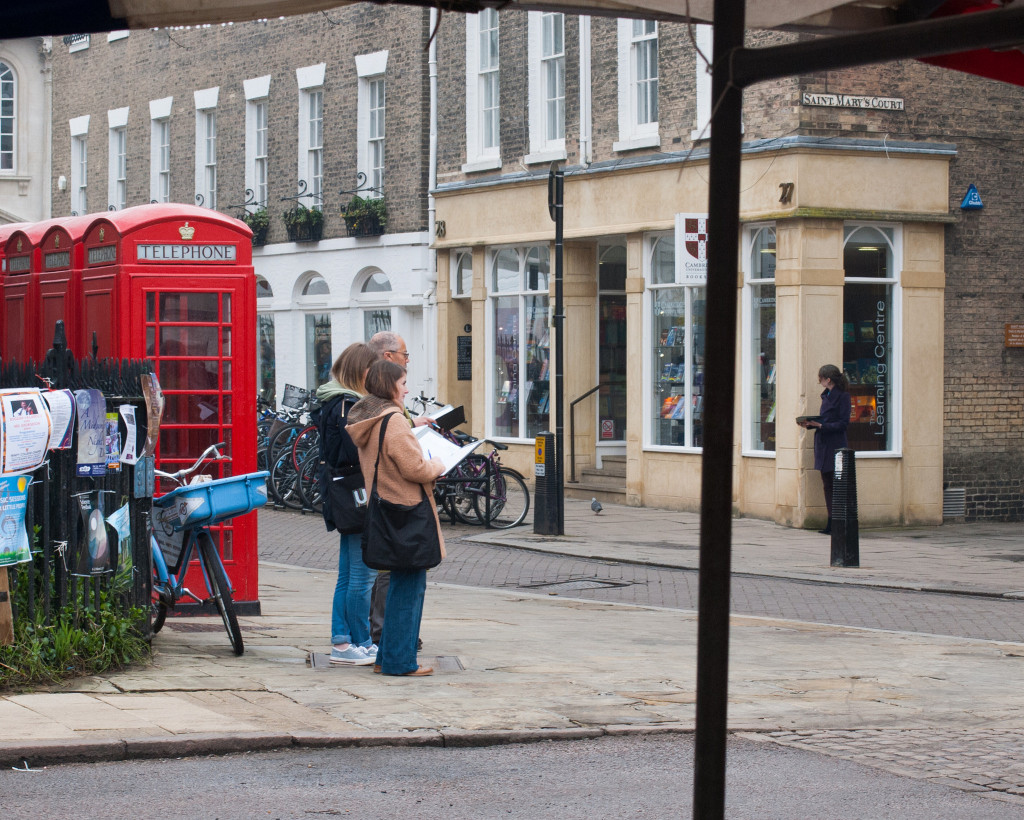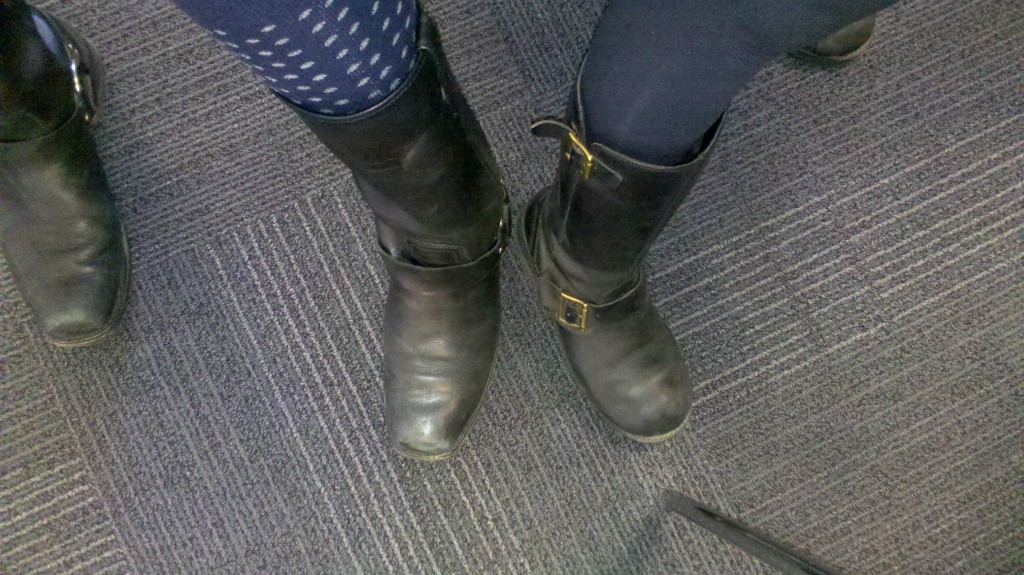|
Listen to this post
Getting your Trinity Audio player ready...
|
https://twitter.com/DonnaLanclos/status/579963734510198784
Well I am back in Charlotte, after nearly a month away from home, and am realizing that I can divide my time in March chronologically, spatially, or in terms of genre. I think I’ll try the last one, as it occurs to me that I really did to several different kinds of things in my travels this past month.
So I’ll post briefly (or, uh, not so briefly) here about the workshops I got to facilitate, not in the least because I want to have a centralized place to collect the links to all of the blogposts other people have written considering the content of those workshops. If I’ve missed any, please let me know! I will edit.
Visitors and Residents
https://twitter.com/DonnaLanclos/status/576340205495541760
In Galway, thanks to the generous invitation of Catherine Cronin (and the sponsorship of the National Forum for the Enhancement of Teaching & Learning in Higher Education in Ireland), Dave White and I got to pilot a version of the Visitors and Residents workshop we’ve been working on for a while. We blogged about it beforehand here. And Catherine interviewed us about the V&R workshop process the day before we did the pilot.
Catherine blogged about it afterwards here . And Sharon Flynn Storifyed it here.
What I’d like to emphasize here is how pleased I am with the steps Dave and I took to make sure that the people attending the workshop (who were so enthusiastic! Thank you!) came away with something concrete (we call it the “So What” part, see the entire workshop template in the .pdf here). We not only discussed the V&R concept, but consistently connected it with practice. People were encouraged to reflect on their own practices, recognize the differences in the practices of their colleagues, and last but not least, think about (and articulate) ways they wanted to move their own practices going forward. They did this by first mapping what they did on the V&R pole chart.
It's like kindergarten here, with paper and coloured pens #vandr pic.twitter.com/R6Rlg09udV
— Dr Sharon Flynn (@sharonlflynn) March 13, 2015
Then they “toured” the maps of their colleagues, and eventually annotated their own maps with the meaning/content of what they originally mapped, as well as their aspirations for the new or different.

Map from one of our participants. Arrows show direction in which they want to move their practices–FB more Resident, for example.
Some people wanted to engage in new digital platforms. Some wanted to stop engaging in some places so as to have more room to develop elsewhere. Some people saw how much their practices reflected their work, but not their personal lives, and resolved to think more carefully about the time they were spending online in all aspects of their lives.
The power in workshops like these is in providing moments people would not otherwise have to really see, and think about, what they are doing. Too often we engage with digital tools or platforms because they are there, or recommended, or because people are there, but don’t have the space to think about why. When people put a presence into a platform but then never really use it, why should they have that presence at all? Being deliberate about motivations to engage can provide people with important chances to make careful choices about the limited time they have for f2f and digital interactions.
I think one of the best things we did in this workshop was make sure there was someone in the room (in this case it was Sharon Flynn) who could make concrete suggestions to people in the room about where they could go for institutional help in learning more about the things they wanted to change and develop. Too often when we do this workshop at conferences we are reduced to hand-waving and “I hope you can find someone to help you!” Being able to hand participants off to specific next steps was indeed Marvelous.
https://twitter.com/catherinecronin/status/576391440370130944
If you want to see what it was like, a recording of the session is available here.
Ethnography

photo by Jamie Tilley, see full Flickr photostream at https://www.flickr.com/photos/132033164@N06/with/16842774026/
I think the most important thing I needed to get right at UXLibs was my workshop on ethnographic methods. It was planned and conducted in conjunction with my colleagues Andrew Asher and Georgina Cronin, and the intention was to equip all of the teams (read more about the overall picture of UXLibs here , here and also here. Ned Potter blogged specifically about the ethnography day here) with a range of instruments and approaches to use for their project in the Cambridge libraries. My workshop was on observations, and while I gave them a basic handout about domains, etc., I really wanted them to just pay attention and note what they saw, and then mindfully write it up. Participants worked in pairs (or teams of 3) and had to pool their observations into a coherent narrative at the end. In Cambridge I sent them out to the Market Square, which bustled with people. Some teams went inside to a bookshop, which bustled less, but they all had plenty to write up. Our discussion post write-up was less about what they observed, and more about the process. Without much prompting on my part we got to discuss the observer effect, ethical obligations for researchers working in public spaces, hazards of interpretation, and the limits of observation as a method (i.e., what else do you have to do to get to a better understanding of what is going on?). I was terrifically pleased–after the rush and bustle of observations, the discussion was fairly low-key, but I felt like everyone dug into the issues and came away with the things in their heads they needed for the afternoon’s fieldwork.
(I will blog more about UXLibs #obvs just not right now!)
Ethnography (with a side of V&R)
https://twitter.com/DonnaLanclos/status/579976584930701312
My colleague Andrew Preater invited me back to Imperial College to work with library staff members with regard to both ethnographic techniques and V&R mapping. Eleni Zazani blogged (very kindly!) about it both parts of the day here. Most of the participants had done the V&R mapping before, but I had not had a chance to try the “So What” part with them, yet. They really came through, annotating maps and talking with each other and with me about what they wanted to change. It’s such a powerful moment to me, to see when people become clear about what they would like to have happen.
https://twitter.com/DonnaLanclos/status/579947291148230656
After a short break I had them do a mini-version of the ethnography workshop I conducted at #UXLibs. Karine Larose had been with us in Cambridge, as had Angus Brown in the Imperial leadership team. So Imperial is well-equipped with people to take ethnographic techniques forward into the work of the library.
This time the observations were distributed throughout the library building, and because I wanted them to be able to apply the workshop to the specific Imperial Library context, we did spend time talking about what they saw, and what they thought it might mean. Once again 15 minutes of observations required far more than that of write-up time (let alone time for reflection, analysis, interpretation, and planning of next steps!).
https://twitter.com/DonnaLanclos/status/579975967403278336
I think I’d like to have a workshop full of library leadership sometime, to have the people who need to make decisions about how staff spend time and resources experience the powerful potential of ethnography, as well as subjectively experience just how much time it takes to do effectively.
Inspired by the concrete suggestions that people had taken away from the V&R workshop in Galway, and the morning at Imperial, I wanted the ethnography piece to have specific outcomes, too. So at the end we collectively thought about the questions that participants wanted to start to try to explore via ethnographic techniques at Imperial.
https://twitter.com/DonnaLanclos/status/579995155144523777
YEAHH!!! We've got loads of ideas to develop and worked on @imperiallibrary thanks everyone & @DonnaLanclos pic.twitter.com/pO558oNEMz
— Karine (@karinenrose) March 23, 2015
And there was a definite impact, with staff members actively seeking out material to help them take ethnography further in their own work.
https://twitter.com/jezcope/status/581486487843274752
Ethnography at Kingston
Kingston University and UNC Charlotte have a formal exchange with each other, and I’m delighted to be starting to participate in conversations there around libraries and learning spaces. Thanks again to Robert Elves for being my liaison and scheduler. The final workshop I conducted was here, and I was once again fortunate to have 2 alums from the UXLibs conference, Sara Burnett and Simon Collins. We didn’t have time to do observations in the library sites this day, but spent good productive time having Sara and Simon go over some of the methods they learned at UXLibs. They also described some of the issues that they observed in the Cambridge libraries, and that led into a great discussion of what they were interested in exploring at Kingston. The outcome of this workshop was a document with a list of questions to start asking, with each question accompanied by the instruments/methods that might provide a good start in finding things out.
Real Outcomes for Real People
Overall, it was just so much fun to not just talk ideas with people, but to take the ideas towards something that everyone agreed would be worthwhile to try. I was never in the position of telling people what they needed to do, but rather helped provide space for the conversation to happen, for people to connect with each other and with new concepts and to make new connections with things they had already heard before. It was satisfying work in a completely different way from report- or article-writing, or presentation-making.
Thanks to all the institutions (NUI Galway, Cambridge, Imperial, Kingston) and people within them who provided me the chance for such work. it was practical in the best sense, and I hope I get to do more of that going forward.
